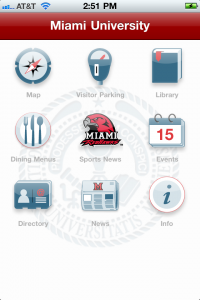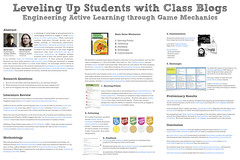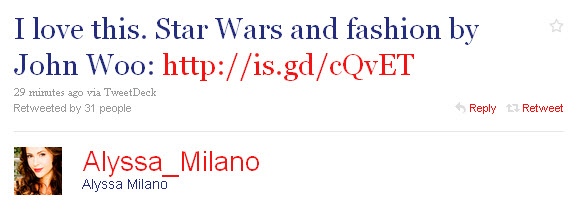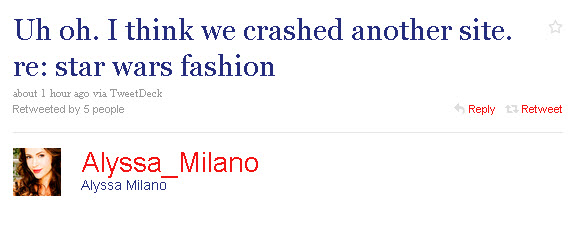Badgers Building Startup Businesses in Madison, WI

- Image by Wisconsin Historical Images via Flickr
Madison, Wisconsin could very well be the next hub for startup businesses. When I was in school in Madison, I watched companies like Microsoft and Google open offices on campus in order to tap into the vast pool of engineering talent. The thing is, Madison goes beyond engineering and has very bright, motivated people looking to build the next “big thing.”
My friend Nathan is one of those people and he has had some nice success stories around building businesses. Moreover, he’s got a fresh outlook on what it takes to get things done, and more importantly, why he is doing what he is doing. This one will also be filed under “Student Profiles.”
Student Bio – Nathan Lustig
I’m the cofounder of Entrustet, a website that allows you to decide what you’d like to happen to your digital assets when you pass away. I graduated from the University of Wisconsin in 2009 with a degree in Political Science. While I was a student, I started a tickets and textbooks trading website and grew it to 150,000 users and sold it to my ad network. I also love sports, traveling, cooking and eating good food.
Dan Reich: Why are you an entrepreneur?
Nathan Lustig: I’m an entrepreneur because I learned at a young age that I really didn’t like the structure of school and being forced to do things that I thought were boring or useless. I was really bored in school growing up and always looked for interesting things to do. When most of my friends got traditional jobs in high school, I started reffing soccer when I was 12, cut lawns and figured out ways to make money. I was always starting things or looking for ways to improve existing products and quickly realized that I would hate living and working in a cubicle.
When I got to college, I bought and sold tickets my freshman year and realized that there was room for a well run website to organize the market. After being in business for a month, I knew there was no way I would be getting a “real” job anytime soon. I love the freedom, the new challenges every day and trying to create something that I know will help people in their day to day lives.
DR: What is entrustet all about?
NL: Entrustet is a free service that allows you to create a list of your digital assets (online accounts and computer files) and then decide if you’d like them transferred to heirs or deleted when you pass away. We came up for the idea after reading Thomas Friedman’s The World is Flat. He talks about a US marine who was killed in Iraq and his family wanted access to his Yahoo! account. Yahoo! said no and after a court battle, a judge ruled that Yahoo! had to turn the contents of the Marine’s email over to his parents.
We thought this was crazy. You shouldn’t have to go to court to gain access to a loved one’s digital assets. We also thought that there may be some assets that you’d rather keep private. The court case showed that your online accounts and computer files are real assets that should be dealt with during the estate planning process. Fast forward to 2010. Domain names, blogs, family photos, email, contacts, twitter and other digital assets dominate our daily lives.
We also work with attorneys to teach them how to add digital assets to wills and trusts. A few months back, my cofoudner Jesse Davis and I were the first people in North America to execute traditional wills with our digital assets included. It’s fairly easy for attorneys to add digital assets to estate plans, but most don’t because they don’t know how to do it. We teach attorneys and then certify that they know what they are doing.
The last piece of Entrustet deals with websites. Websites have no idea when their users pass away and don’t know what they wanted done with their accounts either. This leads to poor customer service, wasted resources and potential legal liability from identity theft, among other things. For example, three Facebook users die every single minute and Facebook has no idea who they are or what they wanted done with their profiles. We help websites by notifying them when their users pass away and what the user wanted done with their account.
Our goal is to help people deal with digital death so that they don’t lose valuable digital assets when they pass away.
DR: Why are you trying to start a business in Madison, WI, and more importantly what’s the deal with your relocation to Chile?
NL: I’ve lived in Madison for the past six years now and love it. It’s got a great University and high quality of life. While I was running my tickets/textbooks website, I’ve gotten to know pretty much everyone in town, so it was natural that we started our next business in Madison. Plus, it’s really cheap. I rent a 3 bedroom with a lake view for $1050 per month, total, for all three of us, utilities included. We rent awesome office space just off the Capitol Square for $250 per month. The money we raise goes MUCH farther here than in NYC or San Francisco.
The Chilean government wants Santiago to be South America’s startup hub, so they are offering foreign startups $40,000 and free office space to move there for up to six months. I applied after reading about the program in Forbes and applied on a lark. We got picked and after talking with our advisers, partners and investors, we decided to make the move. We think the Startup Chile program offers us some awesome networking opportunities, plus I’ve always wanted to live in a Spanish speaking country to get fluent in Spanish.
My partner Jesse and I do most of our work online or on the phone, so we don’t envision all that much changing. Chile is EST+1, so the time difference is minimal and we’re a direct flight away from NYC and 1 stop from San Francisco.
DR: What are you thoughts on Madison, WI as a technology or startup hub?
NL: Madison is already a technology hub, but for the past decade or so, it’s been in biotech. Over the past six years, it’s becoming an emerging IT startup hub as well. Madison was just named the 7th most innovative city in the US and I think it’s what Boulder was 6ish years ago and Austin 8ish years ago. In May 09, I started an entrepreneur meetup group called Capital Entrepreneurs. We had 10 web startups at our first meeting and now we have 65 in the group. Madison is starting to get on the map, with articles in TechCrunch and Read Write Web and Madison companies like JellyFish, Networked Insights, Alice, Brazen Careerist, PerBlue, Asthmapolis and other getting national play. Here’s some other Madison startup resources:
1. Capital Entrepreneurs – Founders meetup group
2. Merlin Mentors – Pairs up successful entrepreneurs with people who want to start businesses
3. Burrill Business Plan Competition – UW student business plan competition
4. Entrepreneur dorm – Dorm floor at UW for students who want to start businesses
5. High Tech Happy Hour – Meetup for high tech workers
6. Forward Technology Conference – Mini SXSW held in Madison
DR: Are there any past projects you worked on that were successful? Failures?
NL:
Successes
- ExchangeHut – Tickets and textbooks website that was acquired
- Forward Tech Conference – Tech conference in Madison
- Capital Entrepreneurs – Madison entrepreneur meetup group
Failures
- Facebook Foodcourt – Tried to create an online ordering website inside Facebook in 2007
- Madison Independent Realty – Tried to create a website that would allow college students at UW to find houses not owned by the big property management companies. Failed because we couldn’t get the property managers to pay us anything to list in 2005.
- Segway Sharing – Tried to do a shared segway system on UW campus in 2008, realized it would cost too much and people feel self conscious riding them.
- Mobile Tickets – I wanted to build a mobile app that would show people buying and selling tickets in real time, in your area. The tech wasn’t there in 2006/7, but it is now. Someone please build this. It would be awesome.
I’m sure there’s more, but those are the ones that are coming to mind right now.
DR: Where do you see yourself in 5 years?
NL: I really have no idea. I’m sure I’ll be doing something entrepreneur related, but 5 years seems really far off. As you can see by the Chile move, I hardly know where I’ll be in 6 months, much less five years. I hope I’m doing something fun, interesting and useful. At some point I really want to work on something education related, but I’m not sure when.
Nathan blogs at http://www.nathanlustig.com/
Related articles
- The Chilean government gives entrepreneurs cash to move to Chile & run a start-up. [TNW Entrepreneur] (thenextweb.com)
- Never Mind the Valley: Here’s Madison (readwriteweb.com)
- Your Online Activity and Personal Brand are Your (Digital) Assets (personalbrandingblog.com)
Badgers Building Startup Businesses in Madison, WI Read More »



















